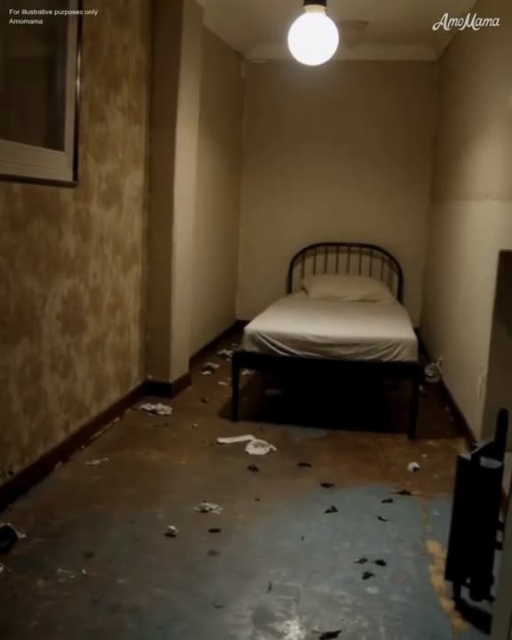I hadn’t spoken to my Aunt Marlene in months—not since she suddenly became Grandma’s legal power of attorney after her fall last winter. She made it sound so noble. “I’ll take care of everything,” she’d said, dabbing her eyes like she’d been waiting her whole life to be the savior in a Hallmark movie.
At first, I believed her.
She had the big house in the hills, the two-car garage, the spotless kitchen that always looked freshly staged. Her Instagram was a rotating highlight reel of manicures, brunches, and wide-brimmed hats at the vineyard.
And Grandma? She deserved that kind of comfort.
So I let go. Trusted her. Thought maybe—just maybe—Marlene had finally decided to do something right.
But then, out of nowhere, I got a call.
It was a man with a deep voice and a hesitant tone.
“Hi, is this… Rachel? I found your number on a bracelet. It belonged to a woman staying in one of our rooms. Her name’s Eleanor.”
I felt my chest tighten.
“Eleanor Reed?”
“Yes, ma’am. I think… she might be your grandmother?”
I didn’t even hang up. I just said “I’m on my way” and bolted.
Three towns over, nearly two hours away, I drove like every second counted. And it did. Because something in that man’s voice told me this wasn’t just a misunderstanding.
This was something else.
Something worse.
When I got there, I nearly threw up.
The place looked like it hadn’t seen a mop or fresh sheet in years. The lobby reeked of old cigarettes and bleach that couldn’t keep up. Room 17. I remember it because it was scratched into the metal plaque with a key attached by a zip tie.
I knocked once.
Then pushed the door open.
And there she was.
Grandma.
My grandma.
Sitting on the edge of a stained twin bed, her feet bare, her favorite cardigan buttoned unevenly, and her eyes—those warm, bright eyes—confused and glistening.
She didn’t even flinch when she saw me.
Just looked up, soft and small, and whispered, “I thought you forgot.”
I can’t explain the kind of hurt that burrows into your chest when someone you love says that. I knelt down and hugged her tight, trying not to cry into her shoulder.
There was no medication.
No food.
Just a half-empty bottle of warm ginger ale, some saltine crackers in a paper towel, and a blanket with someone else’s name stitched into the corner.
I didn’t say a word.
Just packed her into my car and drove straight to the ER.
They ran tests. Checked her levels. Made sure nothing was broken or infected. The doctors said she was dehydrated, but stable.
And still—still—she smiled when I brought her a sandwich from the vending machine like it was a five-star meal.
That’s when I called Marlene.
Straight to voicemail.
No “thank you,” no panic, no how is she?
Just silence.
Until an hour later when I made the mistake of opening Instagram.
There she was.
Marlene.
Wearing a white jumpsuit and oversized sunglasses, raising a glass of wine on a rooftop bar with the caption:
“#SelfCareSaturdays #WineWithMyGirls #NoStressZone”
My blood boiled.
There was Grandma, curled up in a motel room with no AC, no medication, and no food—
And Marlene was sipping sangria under string lights like she hadn’t just dumped her own mother like a secret she didn’t want anyone to find.
I didn’t respond. Not yet.
Because what Marlene didn’t know?
Is that Grandma might be fragile, but she’s not helpless.
And neither am I.
See, what most people forget is that before arthritis and memory lapses, before soft robes and pill boxes, Eleanor Reed was fire.
She was a math teacher who taught two generations of kids in our town how to believe in themselves.
She led the library board. Organized voter drives. Raised two daughters on her own after Grandpa passed and never once asked for pity.
And she never—ever—backed down from people who thought they could walk all over her.
So I called a lawyer.
The same lawyer Grandma had used years ago to draft her original will.
Turns out, Marlene had taken advantage of Grandma’s fall to rush through legal paperwork while she was still disoriented from surgery.
The signatures? Sloppy. One even missing a witness.
It took some work, but we got the ball rolling.
And two weeks later, we were back in court.
Grandma showed up in her Sunday best.
I wheeled her in myself, her hair curled, lips painted soft pink, a scarf tied just so.
Marlene looked shocked. Like she expected Grandma to be too weak—or too gone—to fight.
But Grandma just looked her in the eye and said, “I raised you better.”
That was all it took.
The judge ruled in our favor.
Power of attorney revoked.
An investigation launched into misuse of funds.
Grandma’s accounts restored.
And Marlene?
She walked out in silence.
But not before I leaned in and whispered, “This wasn’t self-care. This was selfish. And you messed with the wrong family.”
Now?
Grandma’s staying with me.
She’s back to sipping tea on the porch, talking to birds like they understand her, and organizing my spice rack alphabetically.
And every so often, she chuckles and says, “I always knew Marlene had more style than substance.”
We don’t talk about Room 17 much.
But I keep the bracelet she wore that day.
Because it saved her.
And it reminds me:
Even when someone tries to erase you, all it takes is one person to say, “No. You matter. You’re not alone.”
If this story fired you up, share it.
For the grandmothers who deserve dignity.
For the families who fight back.
And for the truth that sometimes, the strongest women are the ones the world tried to forget—
Until someone reminded them just who they are. 🛑👵❤️




